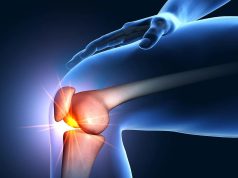Score has favorable characteristics, including reliability, correlation with cUHDRS, and better sensitivity to change than the cUHDRS
By Elana Gotkine HealthDay Reporter
FRIDAY, June 13, 2025 (HealthDay News) — The Huntington disease (HD) Digital Motor Score (HDDMS), which is derived from smartphone sensor-based motor tests included in a remote HD digital monitoring platform, can improve detection of disease progression, according to a study published online June 10 in Brain.
Louis-Solal Gibion, PH.D., from F. Hoffmann-La Roche Ltd in Basel, Switzerland, and colleagues describe development and validation of the HDDMS score, which is a composite score for measuring motor progression of HD in clinical research. Features that quantify test performance according to desired measurement properties were selected and combined in a weighted composite score using factor analysis. The score was developed and subsequently validated using data from four separate studies.
The HDMMS encompasses balance, chorea, speeded tapping, and gait based on data from 1,048 individuals. The researchers found that the score has favorable characteristics, including reliability, with an intraclass correlation coefficient >0.95; correlation with the composite Unified Huntington’s Disease Rating Scale (cUHDRS) (r = -0.5); and better sensitivity to change compared with the cUHDRS. In post-hoc analysis of one of the validation studies, the sensitivity to change was comparable for HDDMS at week 20 and cUHDRS at week 68.
“Our findings suggest that incorporating the HDDMS in clinical trials will help to give clearer answers about whether a potential treatment is working, with fewer participants or shorter lead times than conventional measures,” coauthor Edward J. Wild, M.B., B.Chir., Ph.D., from University College London, said in a statement. “What’s more, the fact that the HDDMS is evaluated in a five-minute assessment in people’s homes makes it convenient and potentially more meaningful than in-clinic measures of motor impairment.”
Several authors disclosed ties to biopharmaceutical companies, including F. Hoffmann-La Roche and Ionis Pharmaceuticals, both of which partially funded the study.
Copyright © 2025 HealthDay. All rights reserved.








